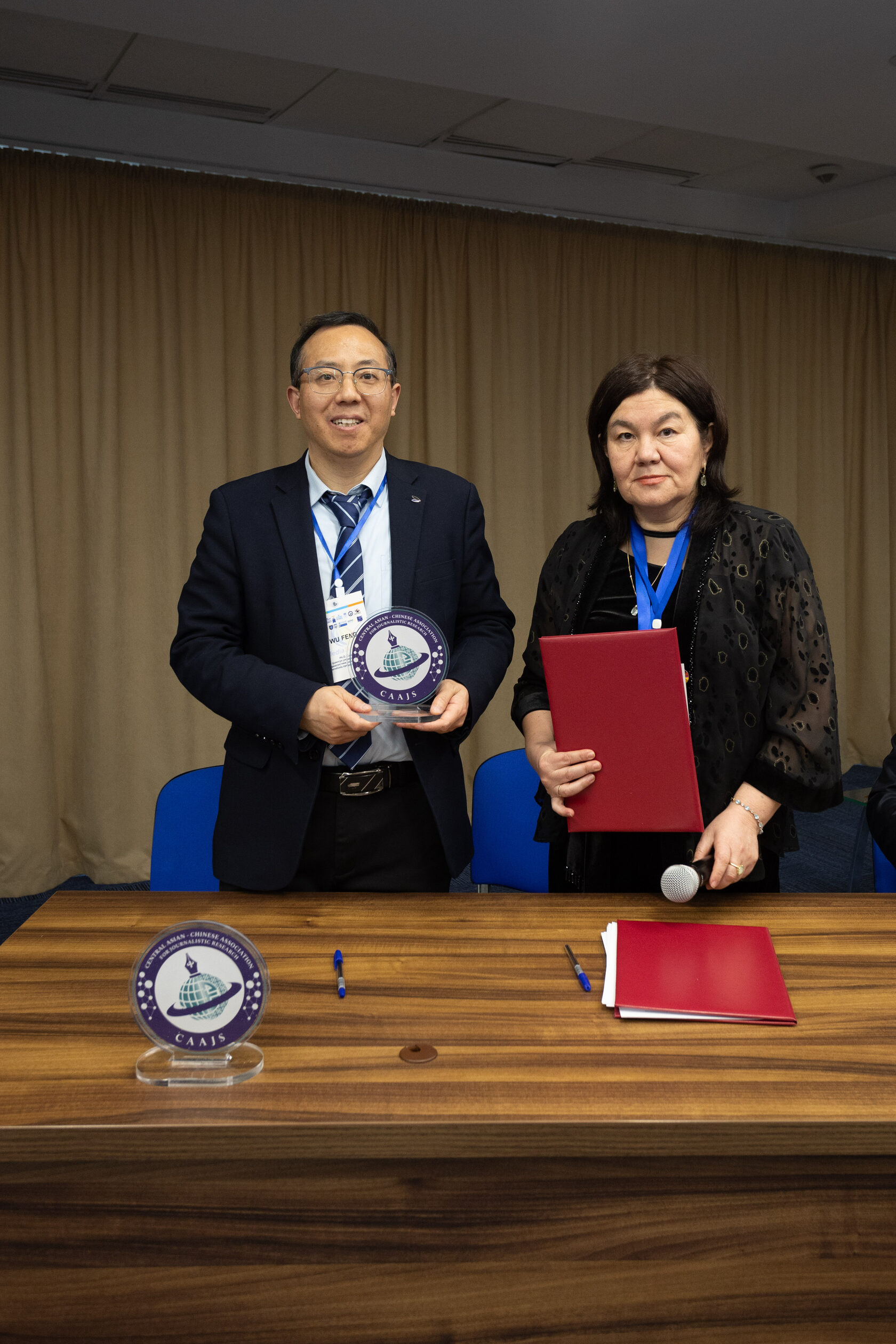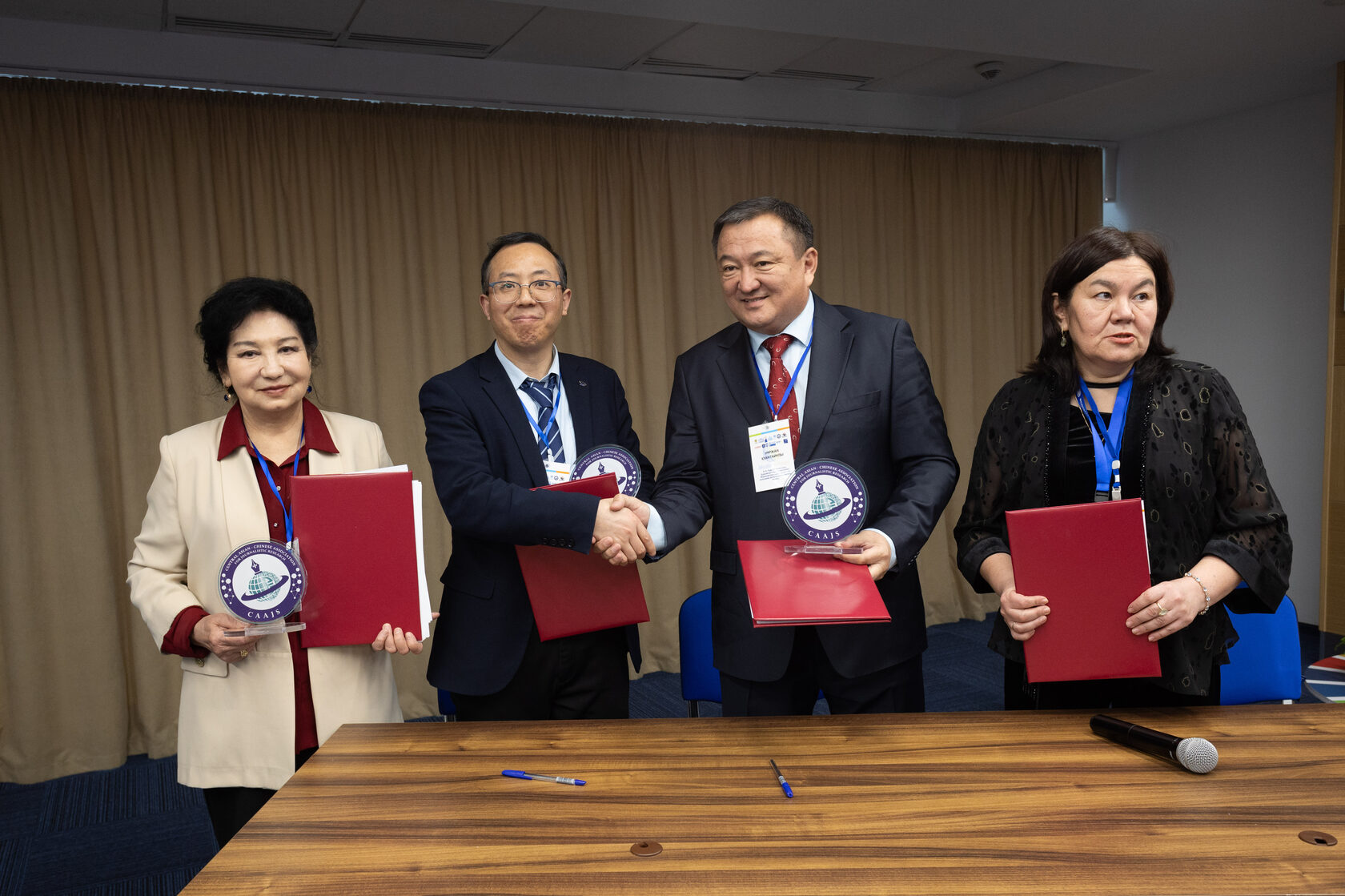For the first time, Narxoz University served as the key organizer of the XII International Winter School of Journalism and Communications, dedicated to World Radio Day. This event marked a significant milestone in the development of media education in Kazakhstan, bringing together students, professors, and journalists from eight countries to discuss the future of digital journalism and its role in achieving the United Nations Sustainable Development Goals (SDGs), as well as in the context of emergency situations.

Students and faculty members of the "Political Mass Communications" program made a significant contribution to discussions and master classes, demonstrating a high level of expertise and a deep understanding of modern media trends in the context of the UN SDGs and emergency response.

The roundtable discussion, "Digital Journalism in Central Asia and China: Local Challenges and Global Trends," organized by Narxoz University in collaboration with its partners, became the central event of the school. Participants examined how digital journalism is transforming the media landscape, opening new opportunities while presenting new challenges, particularly in relation to achieving the SDGs and responding to emergency situations.

Special attention was given to the role of local radio stations in addressing climate change-related issues, which is one of the key sustainable development goals, as well as their role in informing the public during environmental disasters. Participants emphasized that local radio stations play a crucial role in delivering information to the most remote areas, particularly in times of crisis.

During the discussions, the topic of artificial intelligence (AI) and its impact on the media industry was also addressed, along with its potential in achieving the SDGs and responding to emergencies. The discussion focused on how AI can be utilized for data collection and analysis, news personalization, and even content creation to raise awareness about the SDGs and mobilize action toward their achievement, as well as for the rapid dissemination of information during crises. However, concerns were raised regarding ethical issues, copyright protection, and the preservation of journalism's role in the age of automation.

Kainar Akhetov, Director of the Department of State Policy in the Media Sector of the Ministry of Culture and Information of the Republic of Kazakhstan, stated: "The relevant authorities are systematically working to enhance the professional level of industry specialists, including in the field of digital journalism. This contributes to the supply of highly qualified personnel to the market, specializing in sourcing materials and preparing articles in specific industries. More than 7,500 participants have already completed training courses in political, religious, medical, environmental, military, international, IT, agricultural, legal, and financial-economic journalism".

In his address, Akylbek Kurishbayev, President of the National Academy of Sciences of the Republic of Kazakhstan under the President of the Republic of Kazakhstan, stated: "Today, AI enables news personalization, accelerates investigative journalism processes, and even generates content that is difficult to distinguish from human work. This progress brings not only new opportunities but also challenges, including in the context of achieving the SDGs and responding to emergency situations".

Participants of the school emphasized the need to strengthen cooperation between science and journalism to achieve the UN SDGs and effectively respond to emergencies. Research in the fields of big data, machine learning, and media technologies can help the media develop fact-checking tools, combat disinformation, and create new journalistic methodologies that enhance awareness of the SDGs and mobilize action toward their realization, as well as ensure timely and reliable public information dissemination during emergencies.

"This field is on the verge of a new alliance between science and journalism, where research in big data, machine learning, and media technologies creates unique opportunities for analytics, investigations, and forecasting global trends, particularly in the context of achieving the SDGs and responding to emergencies," noted Samek Vlastimil, Head of the UN Information Bureau in Kazakhstan and representative of the UN Department of Global Communications in the Republic of Kazakhstan.

Participants also discussed the importance of protecting journalists covering environmental issues. They emphasized that environmental journalists play a crucial role in informing society about the consequences of ecological disasters and combating "greenwashing."
"Protecting environmental journalists is not just a matter of freedom of speech. It is a matter of survival. It is a matter of our shared future," participants stated during the discussion.

The Winter School, organized by Narxoz University, became a platform for international cooperation and experience exchange in the fields of media, sustainable development, and emergency response. Participants from various countries shared their knowledge and expertise, discussed best practices, and outlined ways to further develop media in the digital age to achieve the UN SDGs and effectively respond to emergency situations.

As part of the event, a Memorandum of Understanding was signed between the Central Asia-China Association for Journalism Studies and partner universities, aimed at strengthening cooperation in media, sustainable development, and emergency response.

Narxoz University's participation in organizing and hosting the Winter School reaffirms its ambition to become a leading center for media education in Central Asia and a hub of expertise in sustainable development and emergency response. The university actively integrates modern technologies and methodologies into its curriculum, preparing specialists capable of working in the era of digital transformation and contributing to the achievement of the SDGs, as well as effectively responding to emergency situations.

The XII International Winter School of Journalism and Communications, organized by Narxoz University, became a significant event in the media landscape of Central Asia. It fostered international collaboration, experience exchange, and discussions on key challenges facing modern media in the context of achieving the UN SDGs and responding to emergencies.
